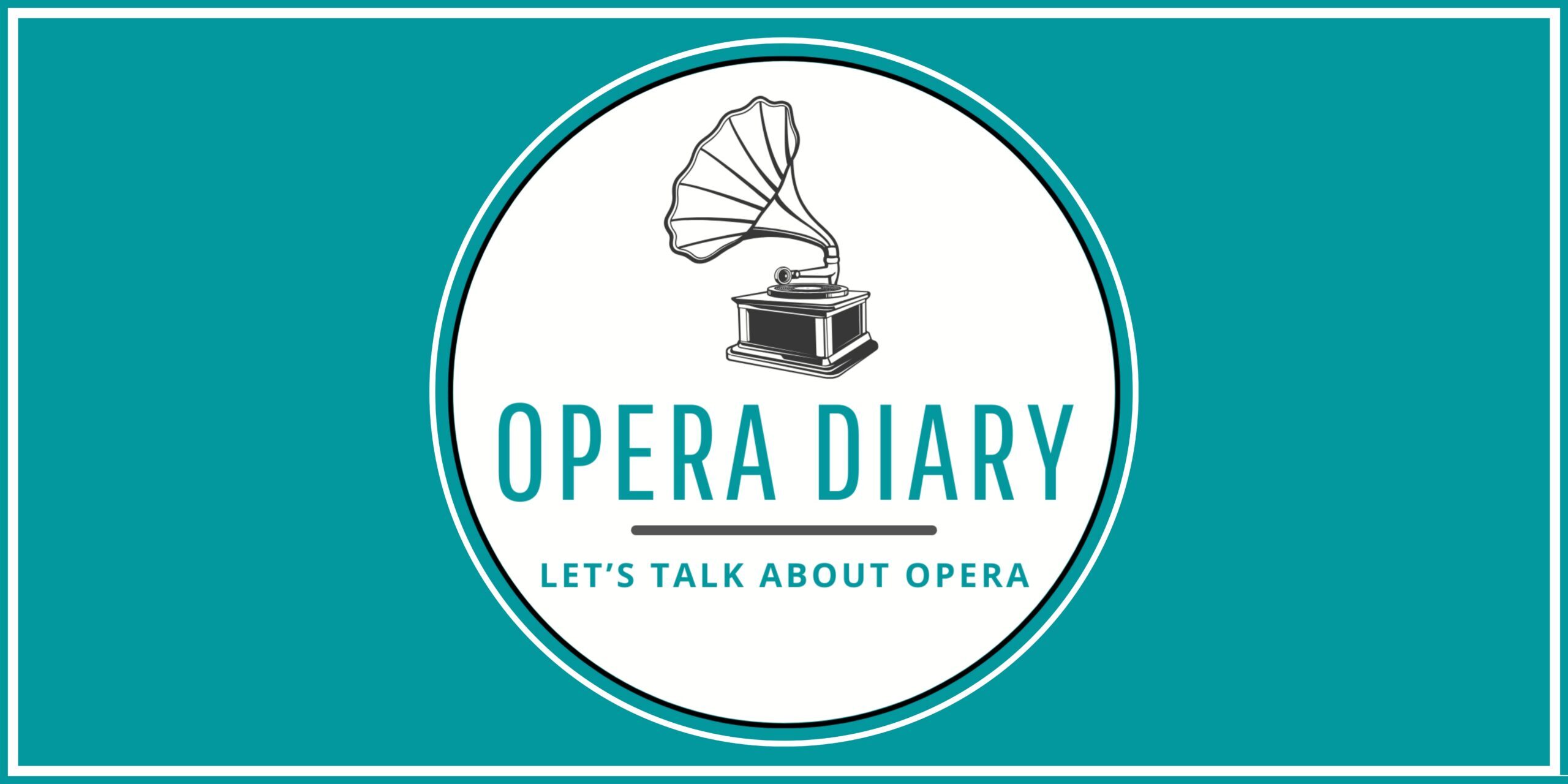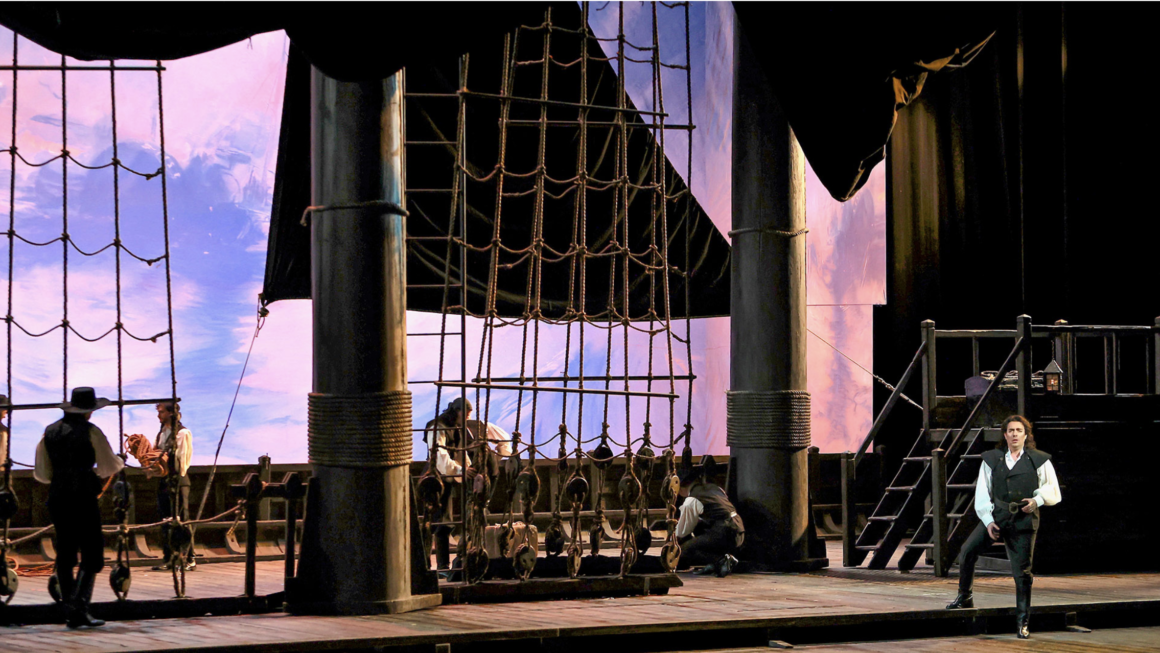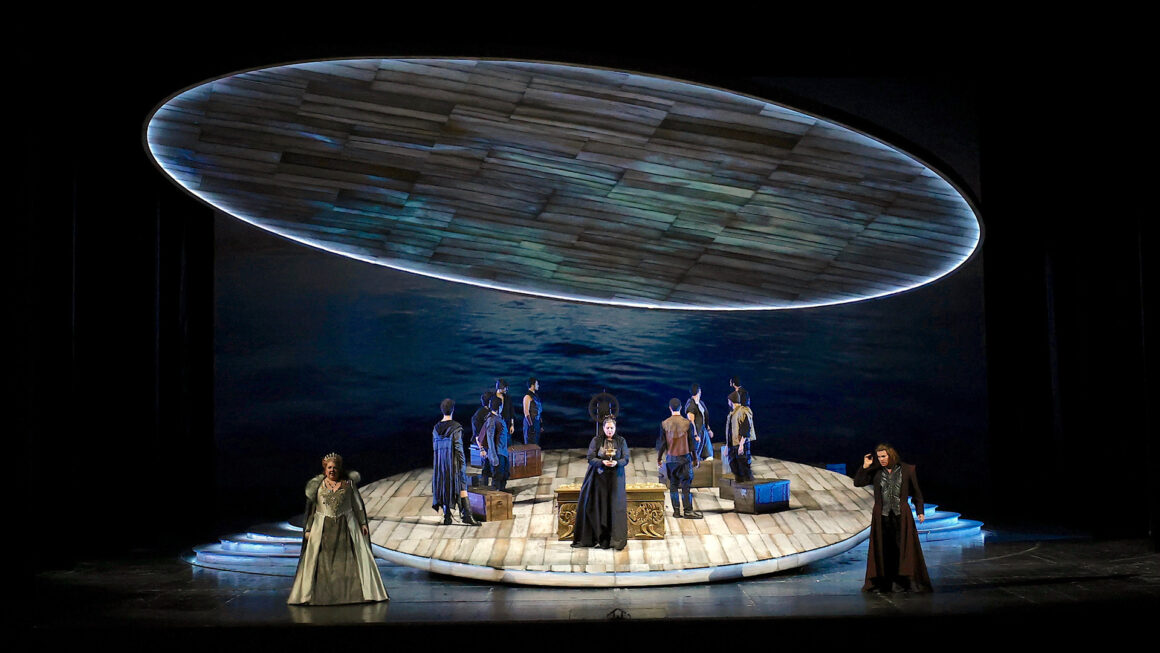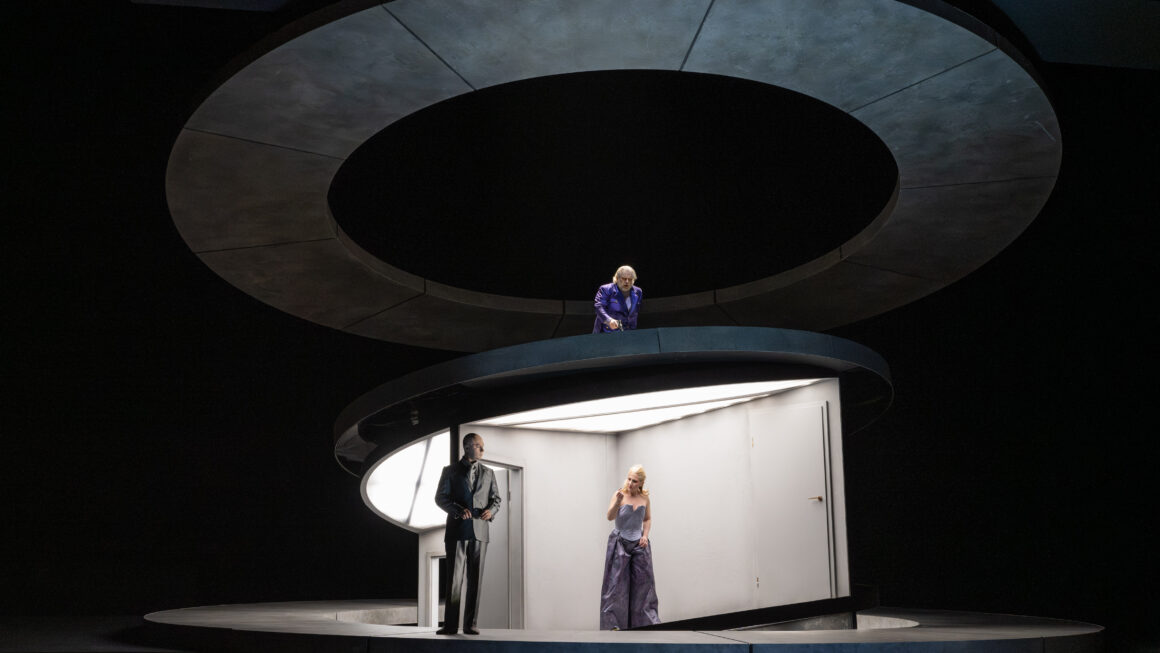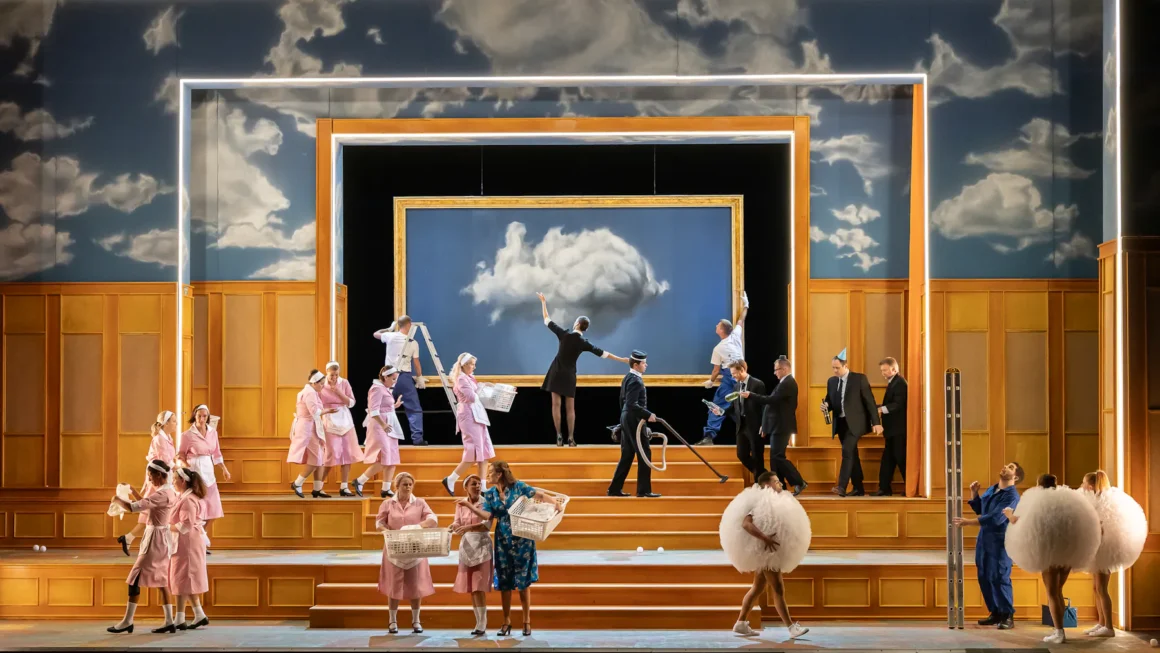The Carlo Felice Opera House, which is coming to the end of a very successful season, stages “Il Corsaro“, one of Giuseppe Verdi’s least performed and well-known operas. The work, taken from a poem by Lord Byron, tells the story of the pirate Corrado and his beloved Medora, who goes to fight Pasha Seid with his Muslim soldiers and his favorite Gulnara. Verdi, who composed the opera in a hurry to fulfill a contract with the publisher Lucca, did not want to participate in the premiere of the opera which took place in Trieste on 25 October 1848. The opera, although not among the masterpieces absolute, contains many references to more famous, previous and subsequent works, in particular Il Trovatore, which has a very similar ending, with the female protagonist’s suicide by poison. Il Corsaro contains several pages of great lyricism and dramatic intensity and authentic masterpieces such as Medora’s aria “non so le tetre immagini”, brought to great fame by the soprano Katia Ricciarelli, who with this piece, won the RAI Verdi voices competition and began a career of international fame.
The excellent representation of Carlo Felice had its strong points in the protagonist and in the Orchestra Conducting. The Genoese Francesco Meli can be considered the greatest Verdi tenor active today, and the role of Corrado fits him like a glove and allows him to highlight the beauty of his timbre, the authentically Verdian phrasing and the perfectly sculpted diction
The opera, among many peculiarities, contains two first soprano roles; Olga Maslova asserts herself in the dramatic role of Gulnara, knowing how to bend her powerful and high-pitched voice to suggestive pianissimi and nuances.
Irina Lungu stands out in the role of lyric soprano from Medora, for the beauty of her timbre and refined phrasing. Good performance by baritone Mario Cassi as Sahid, who shows off excellent high notes but finds some difficulties in the ripresa of the cabaletta
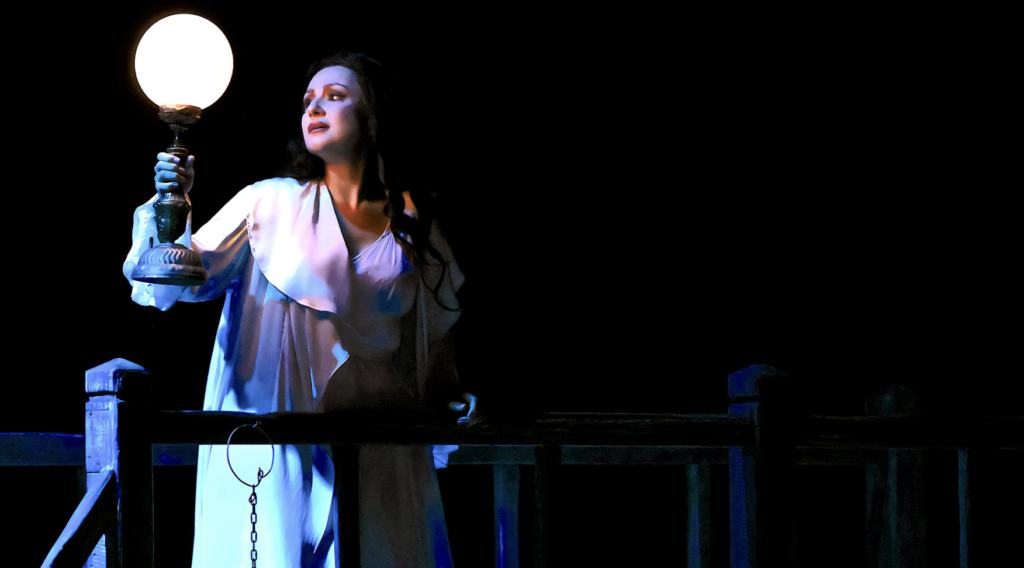
Maestro Renato Palumbo offers a superlative performance, supported by the excellent orchestra of the Theatre, always finding the right balance between pit and stage, enhancing the solo interventions of the instruments and avoiding the guitar accompaniments that often massacre the works of the early Verdi. The interventions of the choir are also excellent, in particular the male one, which are fundamental in the dramaturgy of this work.

The staging by Lamberto Puggelli, twenty years since its first performance, is very beautiful and fascinating. It places the sea with the ships of the Corsairs at the center of the work, with the sails changing colour, black for the Corsairs, red for the Muslims and white for the harem, with the finale where only the bare stage remains, and the choir becomes the audience of the action, with Corrado overwhelmed by the pain of Medora’s death who climbs a long staircase.
Great success and ovations from the public who crowded the Sunday matinee.
